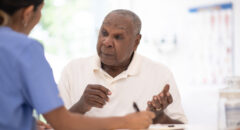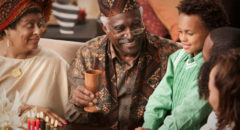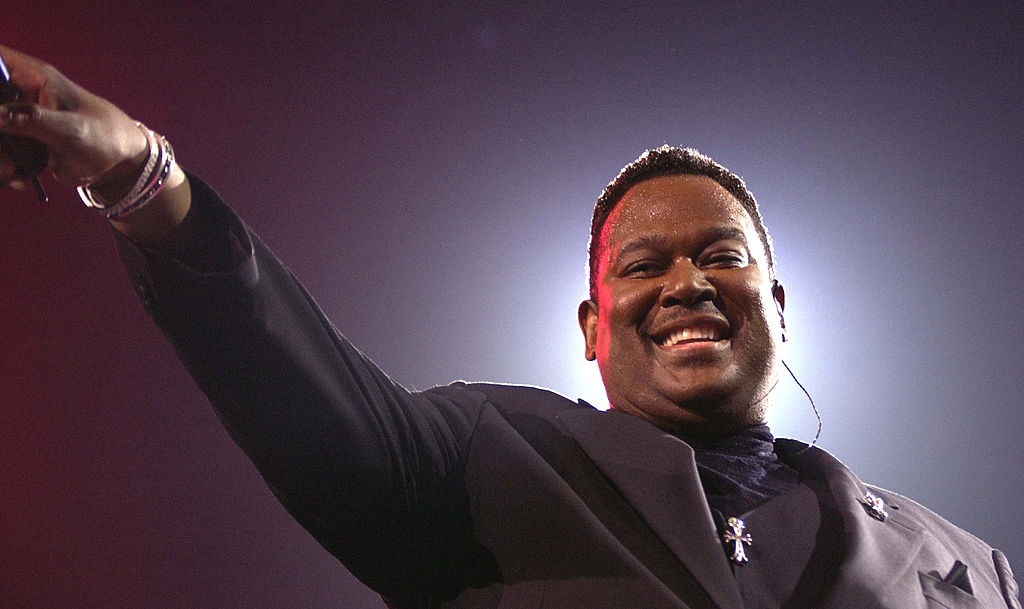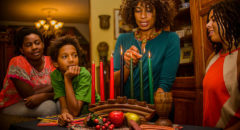Have you ever seen someone walking around with strange bruise-like spots on their back? Sure you have. I know this because there was a point in time when we all were wondering what caused those perfectly circular spots on some of the members of the US Olympic Swim Team, and if you’re anything like me, you hopped online, asked Google about it, and learned those spots were caused by a technique called Cupping. After doing a bit of research, I decided that I would one day try this cupping. “One day” and not right away because my money was funny.
Fast-forward a couple of years and I’m hearing about different spaces offering community acupuncture, a more affordable option to traditional one-on-one sessions. Like cupping, acupuncture had been on my list of healing practices to try. I had my first acupuncture experience in a group setting and was immediately hooked.
It was then that I learned that acupuncture and cupping are often coupled together during private sessions. It sounded perfect, but what really drove me to finally make an appointment for a private session was the fact that the acupuncturist was someone who looked like me. She was also kind, gentle, very attentive, and knowledgeable. She was Black Girl Magic. I browsed her website and contacted her immediately.
Portia R. Wilson, of Deeper Genius Acupuncture and Healing Arts in Los Angeles, has been in business for herself for just under two years and is truly dedicated to helping others heal. Acupuncturists go through a rigorous four-year Master’s program, in which they must learn 300+ acupuncture points, meridian systems, the fundamentals of Chinese medicine, basic western medical knowledge, a complete pharmacopeia of 300+ Chinese herbs, and western pharmaceuticals and pharmacology. That’s 5,000 years of wisdom wrapped into a four year, year-round program and although Board Certified and Licensed if you ask Portia, she’s still “becoming” an acupuncturist. Dedication, indeed.
Although I had two community acupuncture sessions down in the books, I wasn’t quite sure what to expect of my private session with Portia. Because I was technically a new client, Portia sat me down and inquired about how I was feeling and what ailed me. What I liked most about this part of our session was that she actually schooled me on what was going on with my body.
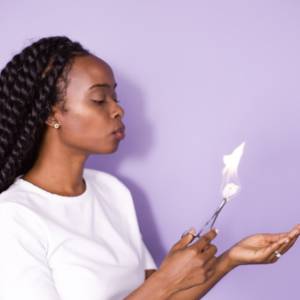
I’ve had issues with back pain for years, but I never really considered that some of my issues might be caused by emotional imbalance and stress. “Acupuncture is a medical system at the intersection of science, art, medicine, and nature.” Not only will it help address back pain, but it will also alleviate anxiety, assist with emotional balance, improve sleep and relieve trauma. That’s just the shortlist.
Now, depending on the areas of concern, your acupuncturist will either have you lie on your back or face down. From previous experience, I knew that the needling would be painless. Before I knew it, all the needles were in place. Portia left me to relax for about twenty minutes before returning to draw out the needles and commence with the cupping.
Portia does a version of cupping called Fire Cupping. Believe it or not, it doesn’t hurt. It actually feels like a massage, but instead of applying pressure to the muscles, the suction from the cups pulls the skin, tissue, andmuscles upward. This helps with encouraging circulation, sedating the nervous system, and drawing out impurities from the body. During and after my session, I felt a level of peace and calm that I never knew was possible, which is one of Portia’s favorite aspects of providing this service.
We tend to look at acupuncture and cupping, along with other forms of self-care, as luxuries; however, people like Jewel Thai-Williams of the Village Health Foundation in Los Angeles and Dr. Mutulu Shakur, who alongside The Black Panthers, helped establish community acupuncture clinics, programs, and schools in the 1970s and 1980s.
The programs that these trailblazers established helped combat addiction, PTSD, and illness. They helped to educate and train even more acupuncturists and ultimately made acupuncture and its benefits more accessible to those in need. Unfortunately, we don’t hear much about how this ancient medicine has affected change in black communities and it’s still a practice that a great number of black folk haven’t experienced but acupuncturists like Portia continue to work to bridge the gap.
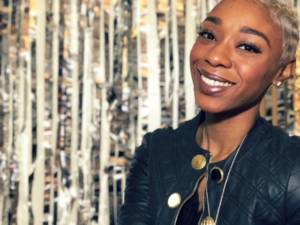
Jasmine Danielle is the Associate Editor of BlackDoctor.org. She received her BFA in Dance Education & Performance from the University of Illinois at Urbana-Champaign and has since done work as a certified fitness & wellness educator, blogger, dancer, and designer.
What's Aromatherapy All About? Find Out Here!
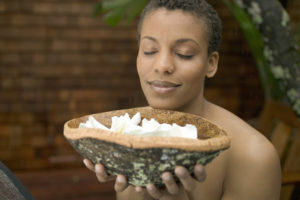
Little is known about the history of aromatherapy. What we do know is, like everything else, it originated in Africa. Egypt, to be exact. Egyptians are credited with developing one of the first distillation machines to extract oils from certain plants that were actually used to embalm the dead. The practice of using infused aromatic oils as a mood enhancer, however, is thought to have roots in China.
How Does Aromatherapy Work?
According to Aromatherapy.com, aromatherapy is thought to work by stimulating smell receptors in the nose, which then send messages through the nervous system to the part of the brain that controls emotions called the limbic system.
How Should You Apply It In Your Life?
Whether it be essential or aromatherapy, oils have impactful healing capabilities. Aromatherapy is based on the principle that natural fragrances, or essential oils, from certain plants or flowers, can affect our moods, and consequently how we think or feel at any given time.
Below are a few tincture mixtures to try out in your bath, lotion, massage oil, shampoo, towel or diffuser – for a customizable mood blend.
| I want to feel... / I want to let go... | Try these... |
| Stress Relief | Bergamot, Chamomile, Lavender, Lemon, Orange, Patchouli, Vanilla, Ylang Ylang |
| Self Esteem | Bergamot, Cypress, Grapefruit, Jasmine, Orange, Rosemary |
| Memory Boosters | Basil, Cypress, Lemon, Peppermint, Rosemary |
| Aphrodisiac | Clary Sage, Jasmine, Patchouli, Rose, Sandalwood, Vanilla, Ylang Ylang |
| Anxiety/Fear | Bergamot, Chamomile (Roman), Cedarwood, Frankincense, Jasmine, Lavender, Neroli, Patchouli, Rose, Sandalwood |
| Sadness/Grief | Bergamot, Chamomile (Roman), Clary Sage, Frankincense, Grapefruit, Jasmine, Lavender, Lemon, Orange, Rose, Sandalwood, Ylang Ylang |
| Fatigue | Basil, Bergamot, Clary Sage, Frankincense, Ginger, Grapefruit, Jasmine, Lemon, Patchouli, Peppermint, Rosemary, Sandalwood |
| Agitation | Chamomile (Roman), Lavender, Mandarin, Sandalwood |
| Isolation | Chamomile (Roman), Bergamot, Clary Sage, Frankincense, Rose |
If you've been considering using aromatherapy, it couldn't hurt to try it! Let us know how you plan to incorporate aromatherapy into your daily living.
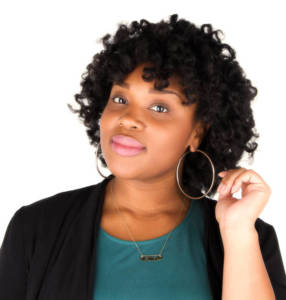
Tia Muhammad, BS, is an award-winning freelance content & media creative, copywriter, blogger, digital designer, and marketing consultant. She owns the boutique content and digital media company, jackieGLDN|studio.




